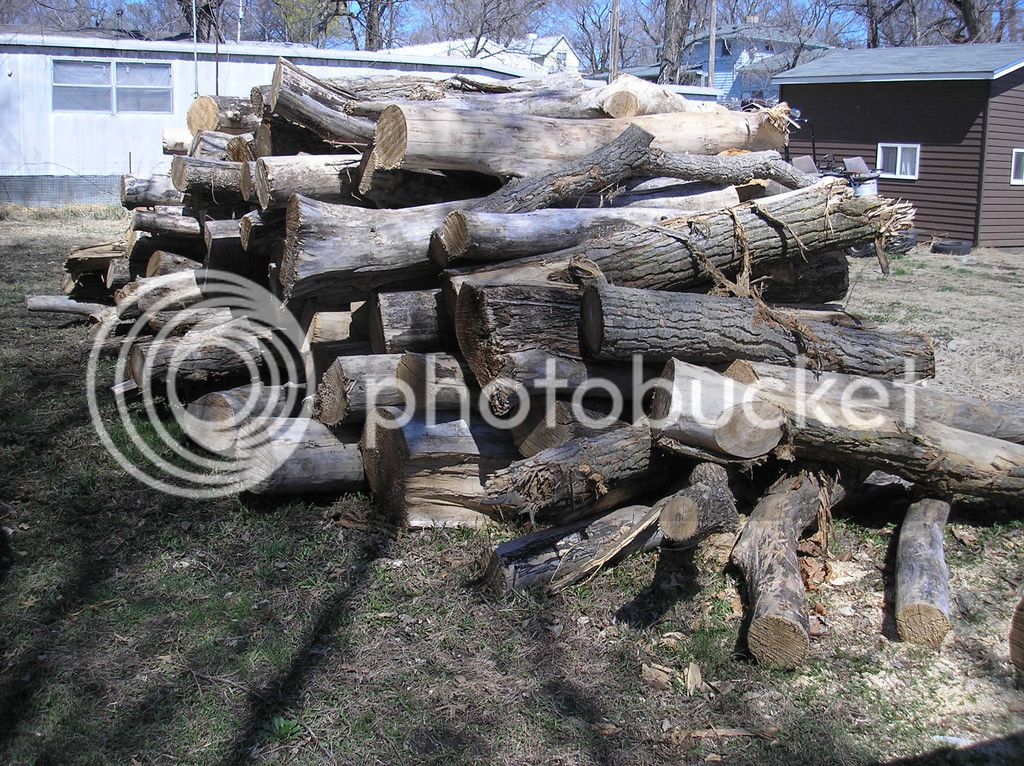greenskeeper
ArboristSite Operative
The day I have to purchase firewood is the day I'll use that funny looking thing on the wall that doesn't control the lights. Prices here are north of $200/cord so it it doesn't make sense financially

I have done this in the past when a tri axle load cost in the $350-500 range. I think 6 chord is more like what you actually get, at least the way it would come out the way consumer protection figures a chord. There was a thread about how to count a chord legally around the time I joined here. Last I knew price was approaching $1000. Sometimes a 10 wheeler sometimes a semi rig with 3 rear axles tri axle with picker on it mostly make sure you understand the difference. Even though lots of folks raise their voice saying a chord is $250 I can get four chords of processed green 95%oak delivered for $700. Very generous chords. Delivered in two loads roll back container. There is one guy that delivers supposedly 4 chords on a single axle. I did not see the economics of buying log length. Lately have left over from a logging operation on site. Chances are a logger has a friend or sub business that does firewood and new customer will likely get a lot of mud with their load. Getting the second load as good as the first has more often than not been problematic.Lots of logging companies around my way, was thinking of trying to contact a company and getting the price on a load of logs that I'd buck and split. Anybody use this method?
The day I have to purchase firewood is the day I'll use that funny looking thing on the wall that doesn't control the lights. Prices here are north of $200/cord so it it doesn't make sense financially









Around my neck of the woods a tri-axle load of wood consisting mostly of oak, hickory etc. with a little bit of softwood will run around $300. Although I have never had to buy a load, I keep in touch with a driver who owns his own truck and he keeps me informed of the price and if it changes.
Here, winter is 11 months and one month of poor sledding.
I'm thinking he means Yellow Birch or sometimes called American Birch. Very hard and dense and good for firewood. Also used for furniture, flooring, cabinets, etc.Compared to what species of birch? We mostly have white birch and that is quite a bit less dense than red oak.
We dont have much birch here, and it probably isnt the same as what you northern folks have. I did cut a river birch a couple years ago, 48" dia. still have some of it in the middle of my wood shed. Burns hot and fast. It might make the same heat, btu wise, as white oak since it does burn pretty hot, but it wont last no where near as long in the stove. I might go down to the wood pile after while and see if I can drag a stick out. I can take a pic and see if it looks the same as the northern birch. Not sure I can come up with a pic of the birch bark tho. The tree was dead when I cut it and bark was slipping then.
That is really cheap, hard to believe he's making any money after paying for equipment, fuel etc and having something left for his time and any wages.
I'm thinking he means Yellow Birch or sometimes called American Birch. Very hard and dense and good for firewood. Also used for furniture, flooring, cabinets, etc.

A lot of tree trimmers will let you carry it away, but they don't want you to buck it first. I argue that if I buck it first, I can carry more away because then my truck is packed tight. Sometimes you have to stand your ground.I like the idea of buying cords by the log but haven/t got the room forit in my yard. I can gather most what i need from sources I have and do it practically on my way home from work. Once or twice a year I know a guy who will dump 1.5 to 2 cords of oak in the yard for 50. The down size is that there's a lot of clean up when I don't buck it first and bring it home. Also not as easy to work with as straight logs! Do a lot of noodling. But it's hard to beat the price! And I only burn 4 to 5 cords a year.